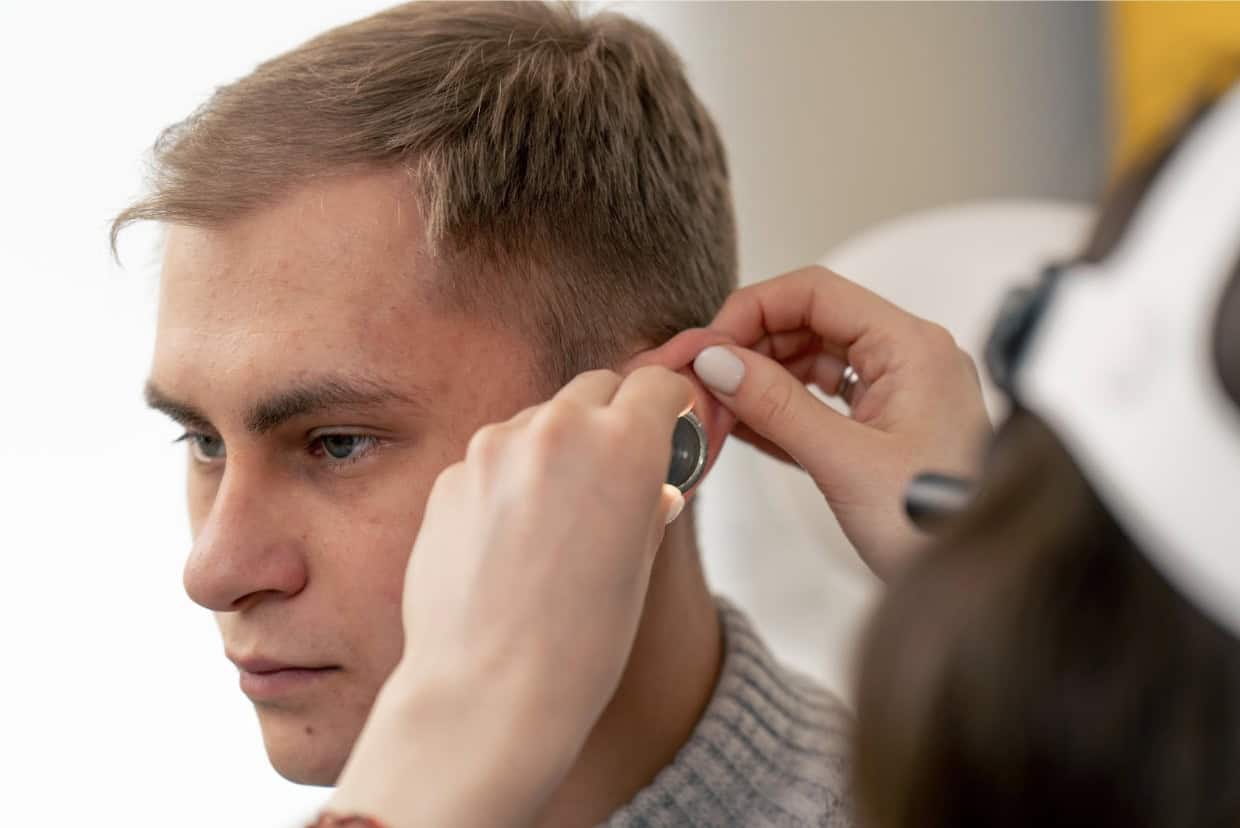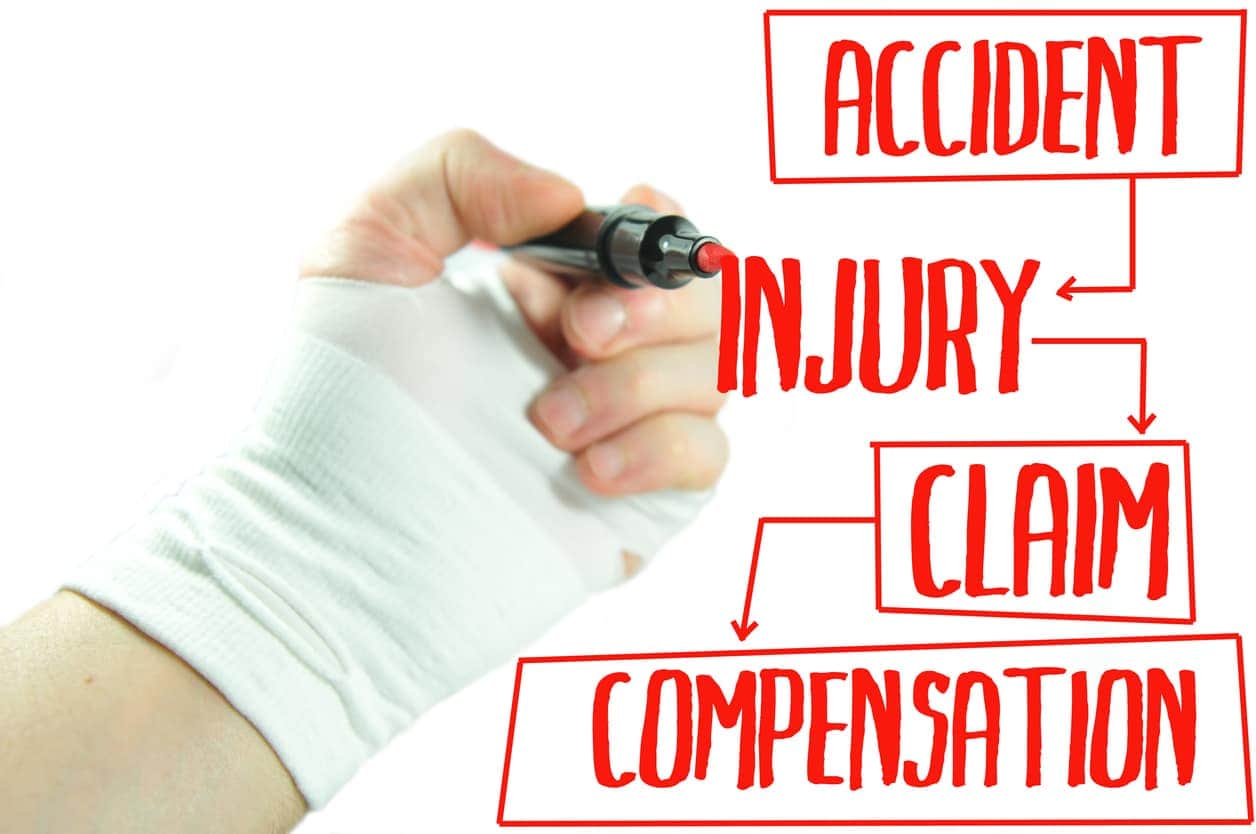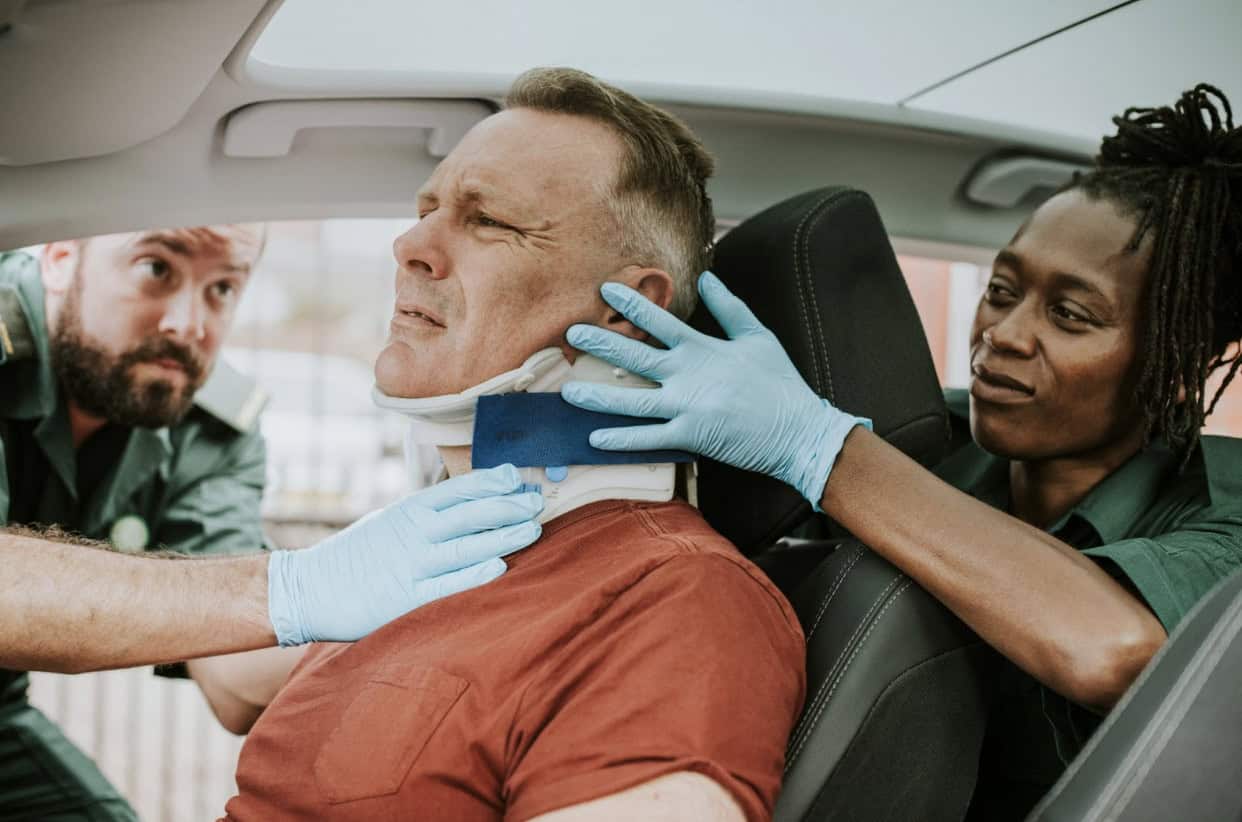Hearing loss isn’t always sudden. For many hardworking Virginians, it develops gradually, after years of operating heavy machinery, working in noisy warehouses, or being exposed to loud equipment without proper protection. Unfortunately, it’s one of the most common occupational injuries, often going undetected until it significantly impacts daily life. If this sounds familiar, you’re not alone.
The good news? You may be eligible for job-related hearing loss compensation through Virginia’s workers’ compensation system. This article explains your rights, what steps to take, and how Renfro & Renfro can provide the legal guidance you need.
What Is Work-Related Hearing Loss?
Work-related hearing loss is a type of occupational injury caused by repeated or prolonged exposure to hazardous noise levels in the workplace. It can also occur from a single traumatic incident, such as an explosion or machinery malfunction. The Centers for Disease Control and Prevention (CDC) estimates that about 22 million U.S. workers are exposed to potentially damaging noise each year.
This form of occupational hearing loss, often referred to as noise-induced hearing loss, can affect both the inner ear and middle ear, depending on the nature and severity of the exposure. In many cases, sensorineural hearing loss develops from long-term exposure to excessive noise, causing irreversible damage to the inner ear’s delicate hair cells.
High-risk sectors include construction, manufacturing, transportation, mining, and even public safety. These industries frequently expose workers to loud noise from heavy machinery, pneumatic tools, or noisy equipment. Background noise in such environments can make it difficult to detect gradual changes in hearing ability until the loss becomes more severe.
Symptoms may start subtly—like muffled hearing, difficulty hearing in crowded spaces, or ringing in the ears—but can worsen over time, potentially resulting in permanent hearing loss. Occupational safety standards, when not properly enforced, contribute significantly to this risk.
Can I Receive Compensation for Hearing Loss in Virginia?
Yes—Virginia law allows injured workers to receive benefits if they can prove that their hearing loss is related to their employment. In legal terms, this is typically considered either an occupational disease or a repetitive trauma injury. The Virginia Workers’ Compensation Commission requires specific medical documentation to establish a claim.
To qualify for compensation:
- You must show at least a 27-decibel hearing loss in the affected ear(s), determined through standardized audiological testing.
- The hearing loss must be directly related to conditions or duties at your job site.
- The loss must not result from aging, recreational exposure, multiple prescription medications, or unrelated medical conditions such as bacterial or fungal infections.
Potential benefits include:
- Replacement of lost wages during time off work
- Medical coverage for diagnostics, treatment, and assistive devices like hearing aids
- Permanent partial disability (PPD) benefits if your hearing loss is determined to be long-term or irreversible
These benefits are calculated based on a schedule outlined by the Virginia Workers’ Compensation Act and take into account the degree of impairment and your average weekly wage. Workers’ compensation claims for occupational injuries such as these are evaluated based on how the loss impacts your remaining hearing and ability to earn.
What Evidence Is Needed to File a Claim?
Because hearing loss can be difficult to quantify without clinical testing, documentation is critical to filing a successful claim. You’ll need to gather a combination of medical and workplace records to demonstrate the connection between your hearing loss and your job duties.
Key forms of evidence include:
- Audiograms: These are standardized hearing tests that compare your current hearing levels to a baseline. Testing must be performed by a licensed audiologist and comply with specific procedural standards.
- Medical Records: Documentation from ENT specialists or occupational health professionals that detail your diagnosis, such as whether you suffer from conductive hearing loss or sensorineural hearing loss.
- Employment History: Descriptions of your job tasks, duration of exposure to occupational noise, and any company safety reports or incident logs.
- Witness Statements: Co-workers or supervisors who can verify the loud conditions, lack of noise controls, or inadequate safety training in your workplace.
- Expert Testimony: Medical professionals may be called upon to confirm that your hearing loss is consistent with occupational noise exposure and not the result of unrelated traumatic injuries.
If your employer or their insurance carrier disputes the claim, having strong legal representation can make a substantial difference.
How Much Compensation Could I Receive?
Compensation for work-related hearing loss depends on several factors, including the severity of the impairment, how it affects your ability to perform your job, and whether the loss is temporary or permanent. Virginia law uses a statutory schedule to determine how many weeks of compensation are owed for partial loss of hearing in one or both ears.
For example, total hearing loss in one ear may qualify you for up to 100 weeks of compensation. A partial loss is prorated based on the percentage of impairment established by medical testing. In addition, you may be reimbursed for medical expenses such as hearing aids, follow-up hearing tests, or evaluations for cognitive decline linked to untreated hearing loss.
While workers’ compensation does not cover pain and suffering, it can offer substantial support if occupational hearing loss leads to permanent disability or forces you into a different line of work.
Employer Responsibilities: Protecting Workers from Hearing Loss
Under both federal and Virginia occupational safety and health regulations, employers are required to maintain a safe working environment. When noise levels exceed the threshold of 85 decibels averaged over an 8-hour shift, employers must implement a hearing conservation program. This includes:
- Providing Personal Protective Equipment (PPE) such as earmuffs or earplugs
- Conducting regular noise monitoring to measure noise levels and identify excessive noise areas
- Offering annual hearing exams to track changes in employee hearing over time
- Training employees on prevention methods, proper use of protection devices, and recognizing early symptoms of noise-induced hearing loss
Failing to meet these standards—through outdated equipment, lack of safety barriers, or insufficient safety training—can lead to disabling occupational injuries and more serious workplace injuries. If your employer did not fulfill these obligations, it may strengthen your claim for compensation.
Why Choose Renfro & Renfro?
At Renfro & Renfro, we believe every worker deserves to be heard—literally and legally. With deep experience in workers’ compensation cases across Virginia, our firm understands the unique challenges that come with job-related hearing loss claims.
What sets us apart:
- Experience That Matters: We’ve helped clients from a wide range of industries, construction, shipping, aviation, and more, secure rightful compensation for occupational injuries.
- Proven Process: We collaborate with licensed audiologists and occupational health experts to document everything from hearing thresholds to work-related injuries involving excessive noise or unsafe conditions.
We don’t just process workers compensation claims—we work closely with our clients to ensure they understand their rights, their next steps, and how to prevent hearing loss from becoming a lifelong burden.
Contact Renfro & Renfro Today
If you’re suffering from hearing loss you believe was caused by your job, you don’t have to handle this alone. Occupational hearing loss is serious, and early action is essential. Time limits apply to filing a claim, and acting quickly can protect your rights and improve your chance of receiving full benefits.
Let the experienced attorneys at Renfro & Renfro help you navigate the process, gather the evidence you need, and advocate for the benefits you deserve. We proudly serve clients across Virginia, with a commitment to clear communication and compassionate representation.
Contact us today to schedule your consultation.
FAQ: Job-Related Hearing Loss in Virginia
Is hearing loss from aging or music exposure covered?
No—only hearing loss directly caused or materially worsened by job duties is compensable under Virginia workers’ compensation laws.
Can I get workers’ comp if I still have partial hearing?
Yes. As long as the impairment meets the decibel threshold and is linked to your work environment, partial hearing loss can qualify for compensation.
What if my employer says the damage isn’t work-related?
This is a common tactic by employers or insurance carriers. The key is providing medical documentation and expert testimony that establishes a clear connection to your job and excludes non-work-related causes.
Do I have to file a claim right away?
Yes. Virginia’s workers’ compensation laws impose strict deadlines—typically within two years of the date you knew or should have known your hearing loss was work-related. Filing early improves your chances of a favorable outcome and helps reduce work related injuries through awareness and early intervention.






